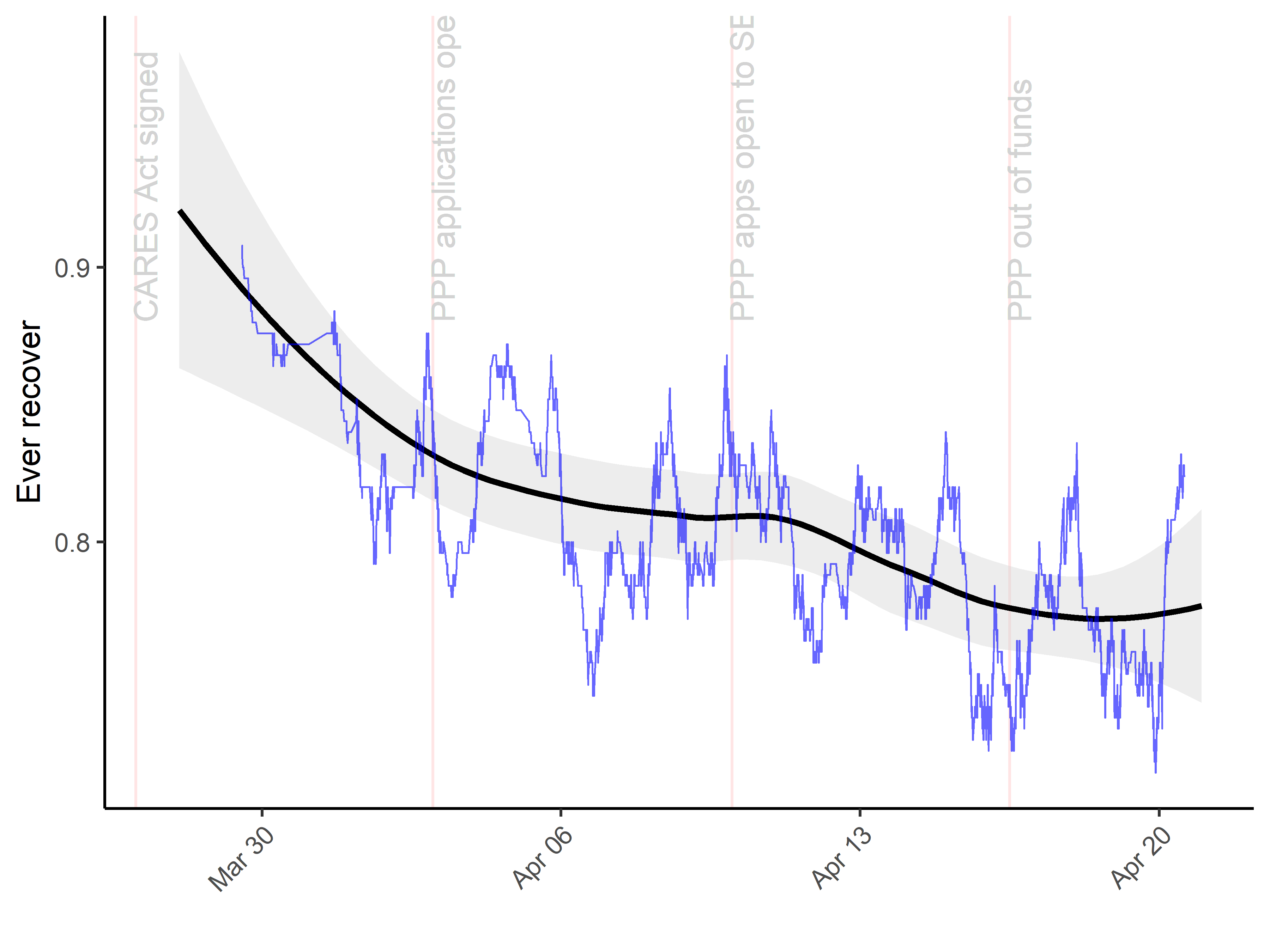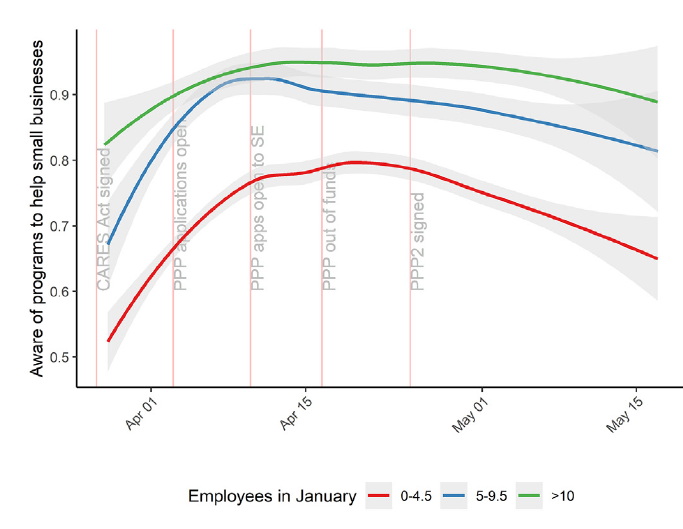Information Frictions and Access to the Paycheck Protection Program
Abstract
The Paycheck Protection Program (PPP) extended 669 billion dollars of forgivable loans in an unprecedented effort to support small businesses affected by the COVID-19 crisis. This paper provides evidence that information frictions and the ``first-come, first-served'' design of the PPP program skewed its resources towards larger firms and may have permanently reduced it's effectiveness. Using new daily survey data on small businesses in the U.S., we show that the smallest businesses were less aware of the PPP and less likely to apply. If they did apply, the smallest businesses applied later, faced longer processing times, and were less likely to have their application approved. These frictions may have mattered, as businesses that received aid report fewer layoffs, higher employment, and improved expectations about the future.
Open access JPubE Journal Article - June 2020 - Bibtex
Figures From the Paper
- Coauthors: John Eric Humphries, Gabriel Ulyssea
- Published: Journal of Public Economics, Vol. 190, October 2020, (pp. 104244)
- Date: 2020



